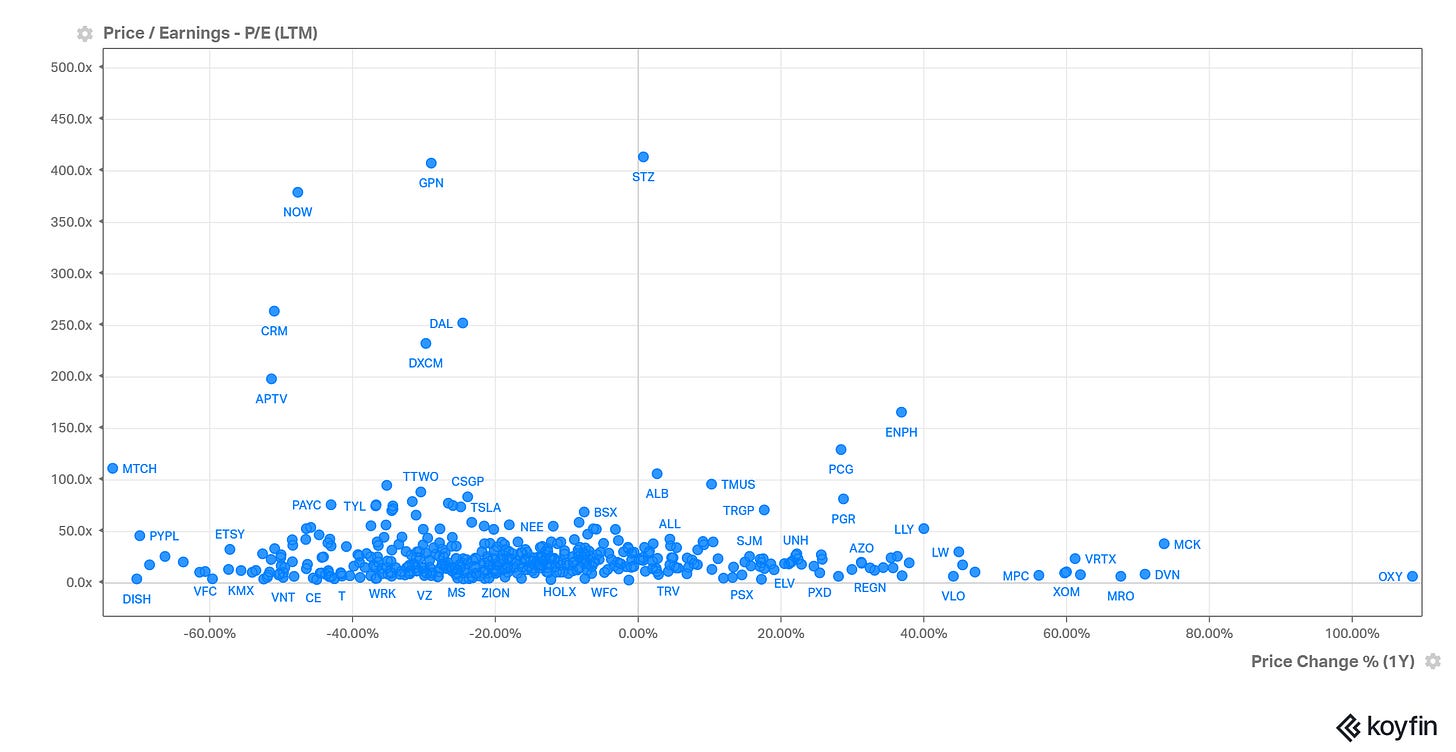We ended the week with the big banks kicking off Q3 earnings season.
Revenues are up (and better than estimated), for three of the big four banks that have reported thus far.
Earnings came in better than expected, but broadly lower than a year ago (exception Wells Fargo).
As we've discussed in the past, the banks are "heads they win, tails they win" businesses. When times are unstable over the past fourteen years, they've been backstopped by the Fed (de-risked), and incentivized to fuel credit creation to help the economy - from which they make money in loan origination, investment banking and trading.
When times are more stable, their customer account balances balloon (as they have now), from which they get to earn an interest rate spread from the rising interest rate environment.
And now, a less stable time, but with rates rising from a long period of zero interest rates, the banks are cashing in on a very healthy interest rate spread. They are very slow to move from paying practically nothing on deposits, while earning over 3% now from the Fed.
As we move into the week, and hear more on corporate earnings, we'll do so with the stock market trading off of a new low for the year, marked Friday, and with a forward P/E on stocks that has come down from north of 20 (at the beginning of the year), to just 15.5.
The long-term average P/E on the S&P 500 is 16.
LTM=Last 12 Months. NTM=Next 12 Months.
So stocks have fallen for three consecutive quarters, evaporating the premium to the long-term valuation multiple on the stock market. Moreover, as of Friday’s lows, we were less than 3% away from fully retracing to the pre-pandemic levels. Yet we have;
$6 trillion of new money in the economy (additional money supply), since the pandemic,
Unemployment is at record lows,
Interest rates (still) are at slightly lower than long-run average levels.
The fundamentals don't match the market behavior. Clearly there is stress in the financial system. But policymakers have shown us, they will do whatever it takes to maintain stability. We should expect intervention, where needed. Again, in their own words: "Whatever it takes."
Stocks are cheap - among the broad market, banks are very cheap, trading at single digit forward P/Es, well below the 5-year averages.
A Message from the Sponsor
The Gryning framework is built on two founding principles;
Times: Understand the jigsaw puzzle of how all asset prices, markets and economies are inter-related.
Portfolio: The link that retail investors - expert macroeconomic research & actionable trading strategies.
Together they make up The Gryning|Times & The Gryning|Portfolio. The former will always be free, this is my small way of contributing to the democratisation of financial research. The latter, for a fraction of the cost, gives you the ability to access & implement a hedge fund strategy.







